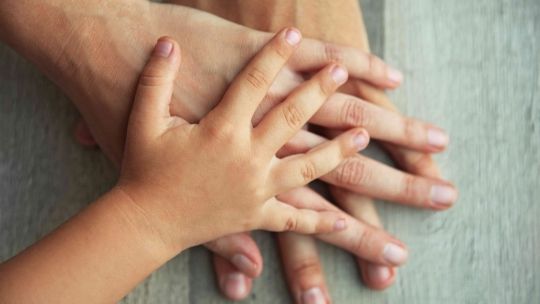
BA (Hons) Childhood Studies with Primary Education
- Study Mode: Full Time
- Location: High Wycombe
- Duration: Three or Four Years
- Start Date: September 2024
Have you always been fascinated by how children learn and experience primary education? Are you passionate about their emotional wellbeing, development and rights?
Develop into a thoughtful and flexible practitioner, acting as an amazing advocate for primary age children. You’ll benefit from practical work placements, one-on one professional support and insight from experience.
Coming to BNU has given me the opportunity to study in a focussed and supportive environment. On the open days I felt really welcomed and the course lecturers were keen to support me to achieve my career goal, this has been reflected during my time here.Morwenna Bone

Why study this subject?
How children learn and experience childhood has never been more important, and together with a whole host of new contemporary research around emotional wellbeing, safeguarding and the rights of the child, there is no better time than now to gain a greater understanding of this important topic.
Meeting the learning and developmental needs of a young person is crucial to their wellbeing, mental health and academic ability. As a professional involved in this area, it’s important that you’re the best you can be and you’re keeping up with current research.
Education in the early years is about sharing engaging, worthwhile experiences with children, linked to their interests and what they already know, thus building on their fascination and wonder at the world around them.Wendy Scott, OBE
Why study at Buckinghamshire New University?
Develop deep insight and knowledge you need to become a valued and trusted support for the children and families you work with. You’ll have the opportunity to meet and work with front-line professionals who can help you feel confident and prepared for whatever path you choose beyond graduation.
Our lecturers are experts and have rich experiences to share that will make your learning come to life. They're all former practitioners themselves meaning they can tell you all about the realities of working with children in different settings. What you learn in the classroom will always be linked to real-life practice.
In addition to our professional backgrounds, we also pride ourselves on our friendly and approachable teaching team, who make you feel included and valued as a student. We feel it’s important to not only teach you the theory but give you examples of how the theory can meet the needs of practice.
With a team of professional lecturers who are dedicated to teaching, you will be able to find the support you need at BNU in order to reach your goals or explore your strengths.
Opportunity modules are a key part of the BNU curriculum. You’ll choose modules in your first year from a broad selection in areas such as sustainability, entrepreneurship, creativity, digital skills, personal growth, civic engagement, health & wellbeing and employment.
Opportunity modules are designed to enable you to develop outside the traditional boundaries of your discipline and help you to further stand out from the crowd to future employers.
Our specialisms
Buckinghamshire New University gives you the opportunity to choose your specialism for your future career after your experience of the core curriculum in year one. Rather than having to make your big decision before you join us, we introduce you to various specialisms and offer you the flexibility to choose the specialism which leads to your chosen speciality. You can choose between BA (Hons) Childhood Studies with Primary Education or BA (Hons) Childhood Studies with Early Years.
These specialisms are also offered as four-year programmes, including an initial Foundation Year. The Foundation Year will allow you to develop your academic study skills and build confidence in your abilities, identifying your own strengths and development needs for progression onto an undergraduate programme.


The quality of teaching is fantastic. The variety of teaching styles allows us students to get a range of skills and find ways we prefer to learn. Due to the slightly smaller scale of the university, you feel like you belong to more of a community. With BNU, there is something for everyone.Morgan Wall
What facilities can I use?
Whilst studying with us you will also use our Apps anywhere web service, which provides access to many of the software applications you use for learning and studying. Apps Anywhere can be used from your own device or from a University owned PC or laptop, from any location.
Our library is packed with all the information you need for your assessments and there’s plenty of room to knuckle down for some quiet study.
What will I study?
This course is ideal for you if you are considering a career in an early years related field. We will focus on important skills in the early years sector such as pedagogy, play development, wellbeing and child development in early years.
We’ll also focus on things like presentation skills and communication both with colleagues and, crucially, with the children and families you support.
This course enables you to follow your interests and career aims and is designed to prepare you to become confident and reflective professionals within the Early Years and Primary workforce.
Our course aims to develop your knowledge and understanding of how children learn and develop from a range of perspectives, including play and school-based learning, sustainability, emotional wellbeing, safeguarding and the child’s place within family and society.
We also give you an insight into the importance of inter-professional working and provide the opportunity to develop key employability and transferable skills valued by today’s employers which will give you an edge in a competitive jobs market.
How will I be taught and assessed?
We assess your work in several different ways to reflect the different learning styles our students have, some of which are listed below:
- essays and reports
- poster presentation or children’s books with explanatory rationale
- PowerPoint presentations with explanatory rationale or reflective commentary
- collage (a series of images used to illustrate the benefits of play)
- images (a series of sequential images to illustrate an aspect of childhood)
- reflective commentaries.
- observations of practice
- projects and exhibitions
- micro-teaching sessions
- training materials
- professional discussion
- portfolio of evidence
All staff have gone above and beyond to ensure that I am supported in every module by providing tutorials, guest speakers and workshops. Also, staff appear to want the best for the students so are available by email in between lectures which I have found really helpful, so you do not have to wait for support until the next lecture.Morwenna Bone

What are the course entry requirements?
A typical offer will require a UCAS tariff score of: 104 - 128 (Full-time) or 32 - 56 (Foundation Year)
UCAS points can be obtained through qualifications such as A levels, T levels, BTEC or an Access to Higher Education course in a relevant subject. Please list all your qualifications on the application form as you will be asked to provide copies when we receive your application.
Please note, a typical offer requires GCSE Maths and English at grade C/4.
For further details of our international English entry requirements, please visit our international pages.
Applicants who do not meet the minimum requirements for the three-year undergraduate programme, or those who do not feel fully prepared for a degree course, can apply for a four-year programme including a Foundation Year; find out more.
Modules
This provides a guide of the modules that make up your course. You can find more information about how your course is structured on our Academic Advice section.
This course has Opportunity modules.
Opportunity modules are a key part of the BNU curriculum. You’ll choose modules in your first year from a broad selection in areas such as sustainability, entrepreneurship, creativity, digital skills, personal growth, civic engagement, health & wellbeing and employment. Opportunity modules are designed to enable you to develop outside the traditional boundaries of your discipline and help you to further stand out from the crowd to future employers. Find out more.
What are the tuition fees
Home
-
Home, Academic Year 2024 - 2025: £9,250 per year
International
-
Overseas/International, Academic Year 2024 - 2025: £15,150 per year
What are my career prospects?
Once you’ve graduated with your degree in Early Childhood and Primary Education Studies, you’ll be well qualified to think about several different careers.
You could consider completing teacher training via School Centred Initial Teacher Training (SCITT), Early Years Initial Teacher Training, or even a Postgraduate Certificate in Education (PGCE). You can also choose to study one of our postgraduate course like PGCert Practice Education here at BNU.
If teaching isn’t your thing, how about progressing into a position in social work, special needs, play therapy, charities and international development work.







